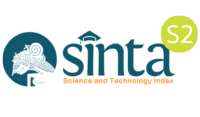RELIGIOUS MODERATION AND LOCAL RELIGIOUS CONTENT CURRICULUM: A STUDY OF THE INTERNALIZATION OF THE RELIGIOUS MODERATION VALUES IN MADRASA
DOI:
https://doi.org/10.31330/penamas.v35i1.537Keywords:
Keywords: Implementation; Value of Religious Moderation; Religious Local Content CurriculumAbstract
Religious moderation is an important comprehension among the spread of extreme religious thoughts and practices. In this case, Islamic education institutions have a major role as the spearhead in internalizing religious moderation values, including Madrasah Aliyah (MA) NU Miftahul Falah Kudus, Central Java. This study aims to reveal the characteristics of the local religious content curriculum focusing on religious moderation, the process of internalizing the religious moderation values, and the model of religious moderation education based on the local religious content curriculum. In its implementation, this research used a qualitative approach with data collection techniques in the form of interviews, observations, documentation, and a literature review. Sources of data were obtained from the head of the madrasa, deputy head of curriculum, teachers of local religious content, and students. The results of this study revealed that first, the characteristics of the local religious content curriculum at MA NU Miftahul Falah Kudus were more of Islamic boarding school-based curriculum, in which the yellow books (Kitab Kuning) written by classical scholars have been used as teaching material. Second, the process of internalizing the religious moderation values was taught through local religious content subjects, starting with the socialization and equalization of perceptions about religious moderation to supporting teachers, which was then internalized in all local religious content subjects, with the main emphasis on aswaja, ushul fiqh, qawaidul fiqhiyyah, and religious NU subjects using a problem-based learning model combined with the sorogan and bandongan methods. The three models of religious moderation education were emphasized through Islamic boarding school-based subjects by adopting formal education using a problem-based learning model and Islamic boarding school education using the multi-strategy model in its delivery. As a formal educational institution based on an Islamic boarding school with teaching materials from the Salaf book, this madrasa is present as a formal educational model institution focusing on mainstreaming Islamic wasathiyah insight.








